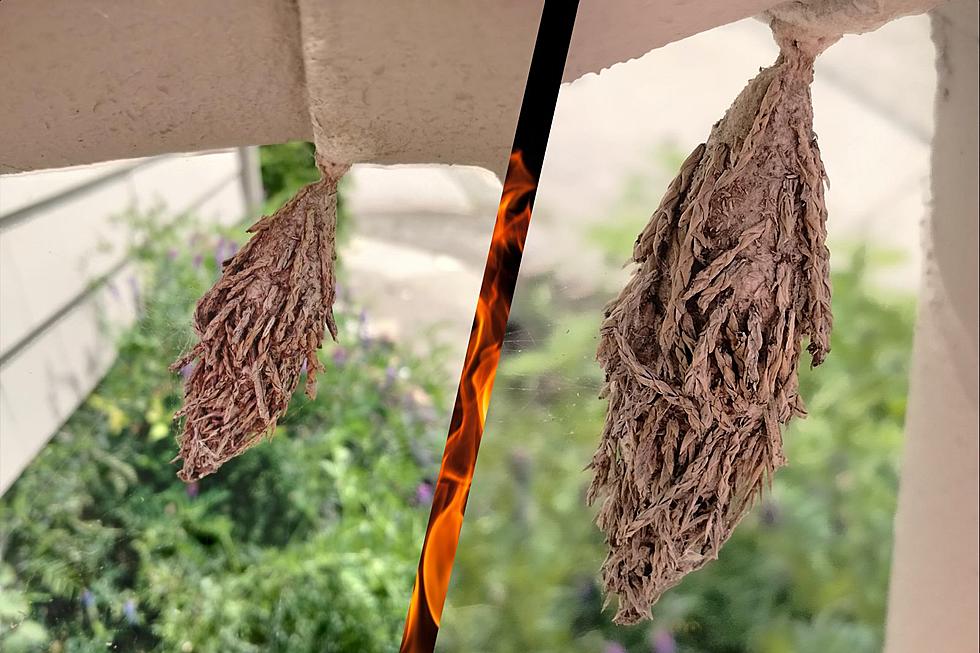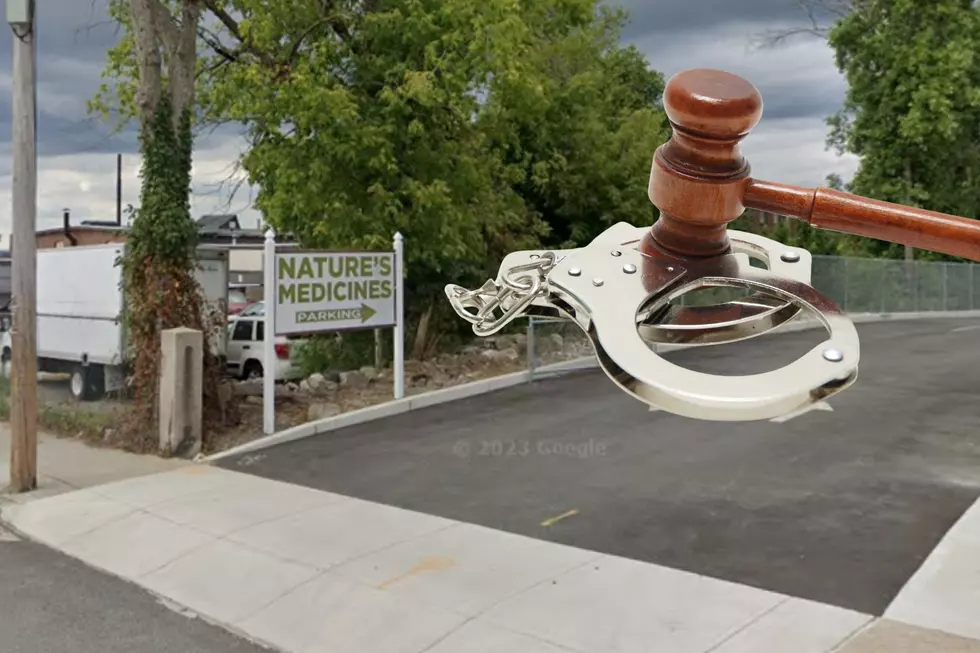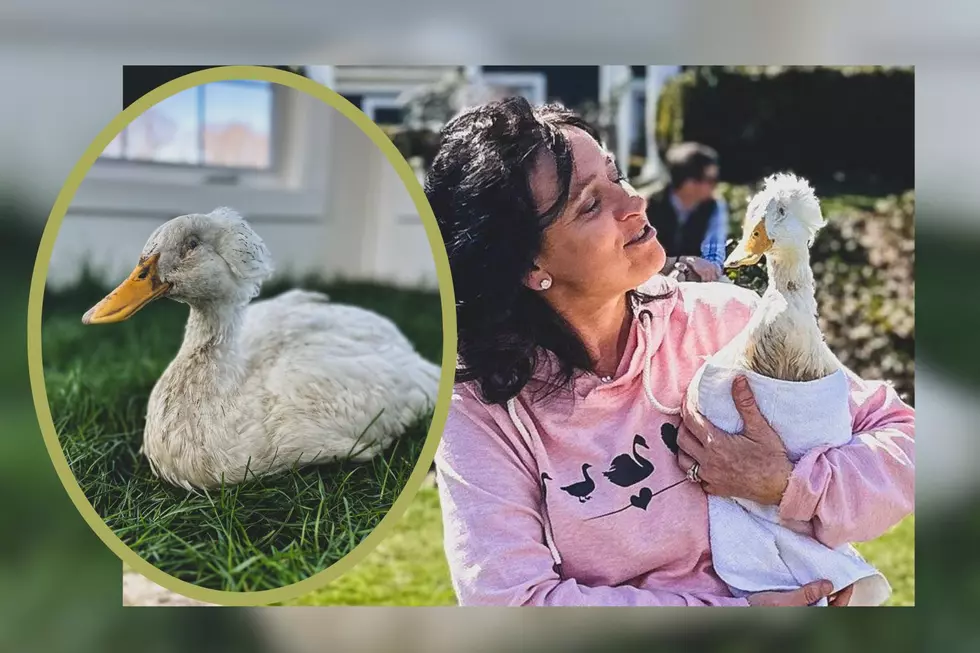
Tiverton Woman Finds Alien-Like Creature on Front Porch and the Internet Tells Her to Burn It
I was today years old when I discovered what a bagworm moth was and I've unlocked a new fear.
As apparently harmless as they are, there is something about moths that freaks me out.
A woman in Tiverton recently found a strange-looking bundle of twigs and dead leaves on the railing of her front porch and took to Facebook to get help identifying it.
"Does anyone know what this is? It's hanging from the railing on my porch. I've never seen anything like this before. Seems like some type of cocoon or something!?!?"
Immediately, the comments came flooding in with one repetitive answer:
"Burn it to the ground."

According to the U.S. Department of Agriculture, bagworm moths feed on trees and shrubs. Although it's not so much a "pest of economic concern," these bugs are still harmful to the greenery in yards and forests.
"Discarding but not completely destroying removed bags may result in eggs surviving, hatching and dispersing larvae that reinfest treated trees," the department notes.
In other words, if you care about your garden and the environment, get rid of it all.
These alien-looking insects normally hatch around July, so now is the time you would most likely find the cocoons. Specific insecticides can help destroy the population, but if you act too late, it will have zero effect on the larvae once they reach a certain size. Your best bet is to avoid chemicals altogether as these insecticides are harmful to bees and other insects that are resourceful to the environment.
Beautiful Plants That Also Keep The Bugs Away
Items Dangerous to Animals That You Have in Your Yard
More From WFHN-FM/FUN 107









